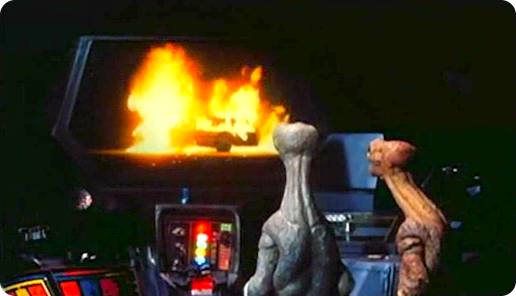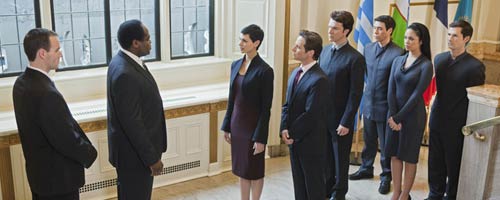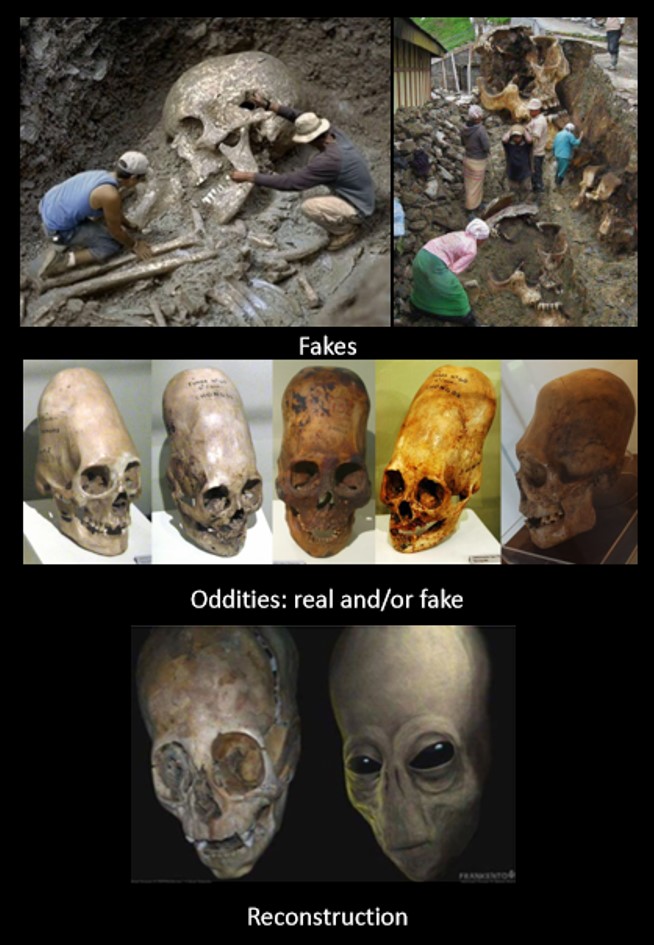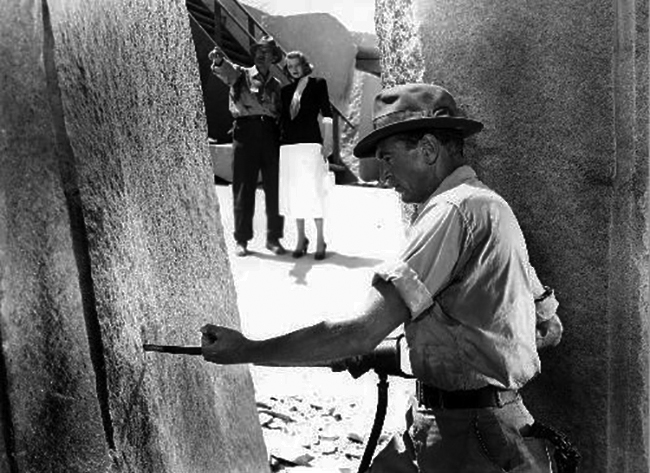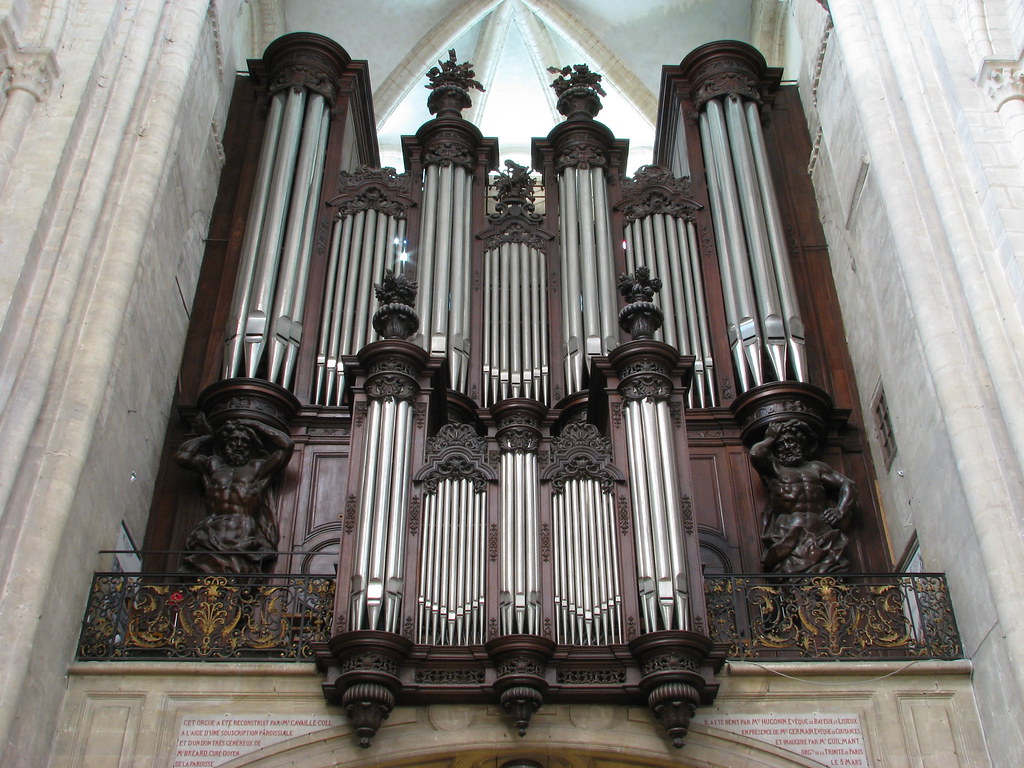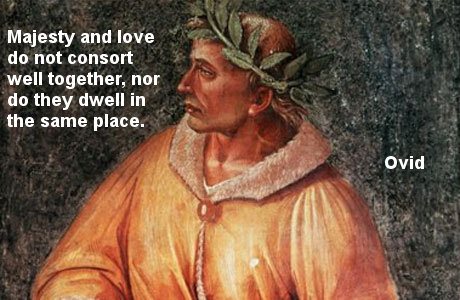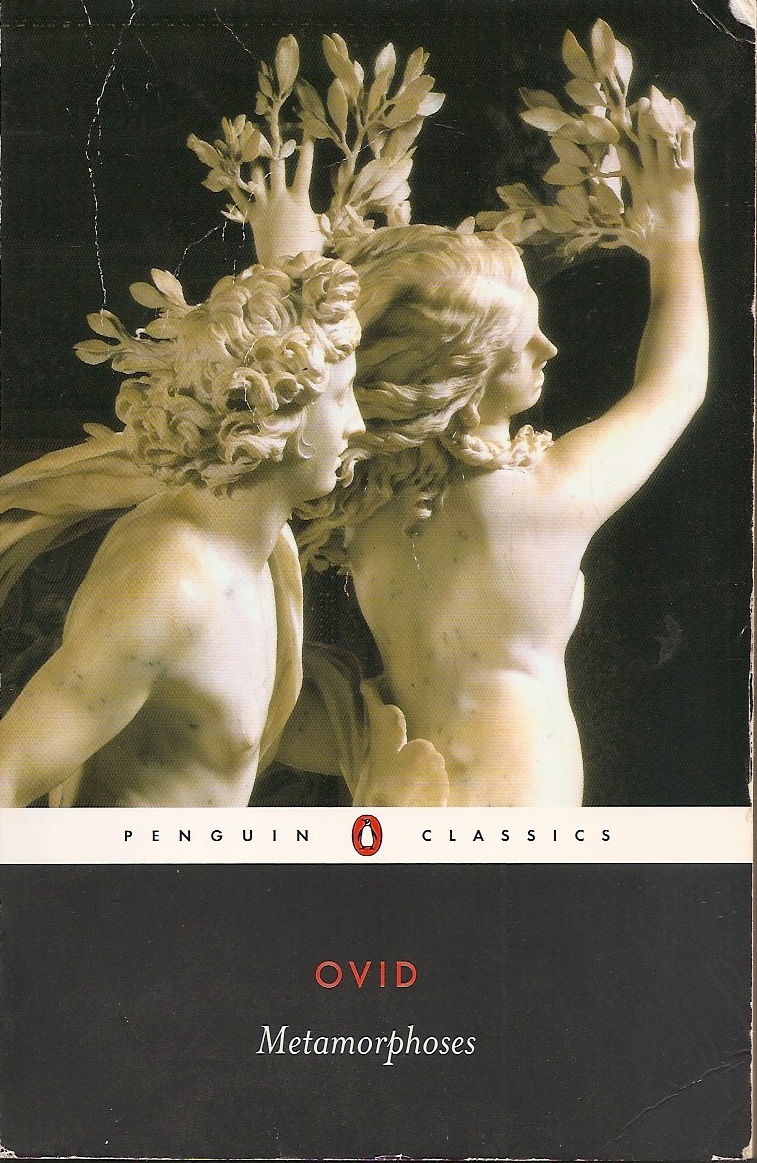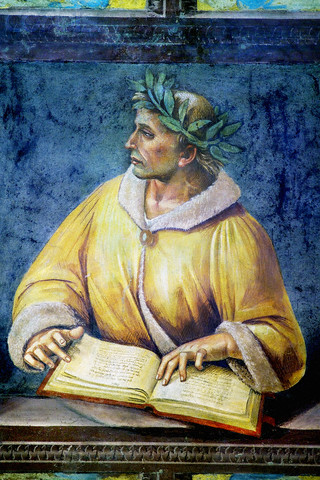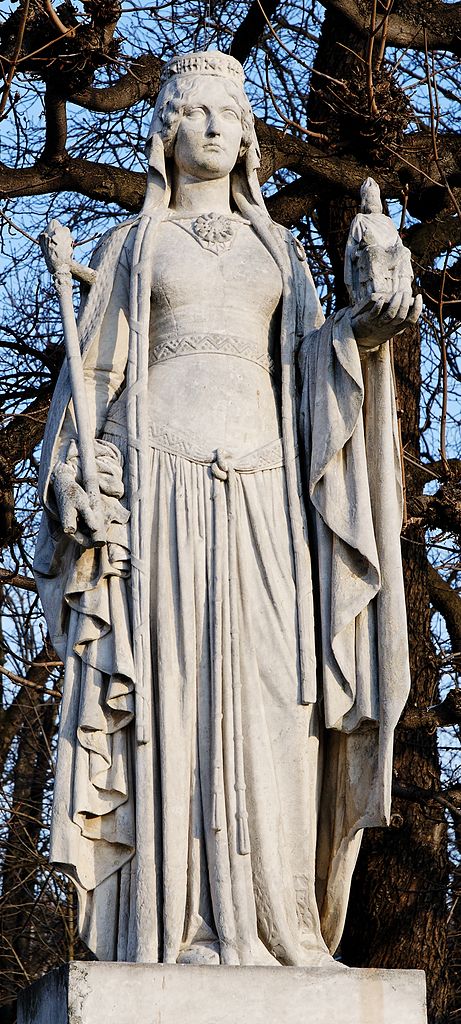




I wish the Trumps, Obamas, and Clintons well, but I am horrified regarding what some say about how things really work in the world!! I'm reading a book, which I've had for quite a while, which is making my hair stand on-end!! I have no idea how much of it is true, but even if ten-percent is accurate, it would be earth-shattering!!
UTF8&qid=1485296984&sr=8-1-spell&keywords=planet+earth+inc+ed+rychun



In PLANET EARTH INC., VOLUME ONE, Ed Rychkun will take you on a remarkable 5000 year historical journey of the dark and light plight of Earthlings to free themselves from the Empire of PLANET EARTH Inc. Here you will learn how: the Global Elite gods have created the Luciferian corporate structure of conquest the means of conquest has become commerce, debt and religion the gods of Sumeria have created their dynasties to emerge into world power the gods of vengeance and greed now face their ultimate challenge of 2012 the End Times final prophesy to impose New World Order is at risk the truth is not black and white While shattering myths about Lucifer and Christ, Ed Rychkun maps out the Illuminati and royal Bloodline business plan of PLANET EARTH Inc and how at the turn of the century their secret New World Order plan came into risk. The book exposes a new truth about the private world of the Elite, Vatican and Jesuits; how they reap and maintain dominion over their Earthling slaves. Accepting the business strategy of polarity; divide and conquer through religion and commerce, Earthlings have provided their monetary and spiritual energies through a commercial utility called a Strawman. Ed reveals how acceptance of dominion over Spirit and Monetary affairs has brought humanity and Nations alike into subservience, bowing before false vengeful gods and the falsity of monetary debt. This book exposes a carefully crafted PLANET EARTH business plan, and the Lucifer-Christ duality of Novus Ordo Seclorum over centuries of bloodline control. Will the Earthling accept a fate of slavery even though the truth is hidden in plain sight? Or will the Earthling rise above polarity and face the Lucifer-Christ truth?
In PLANET EARTH INC., VOLUME TWO, Ed Rychkun reveals how Earthlings, as employees have begun to shift at the turn of the Ages to a new Christ Consciousness, demanding a new truth of commerce and spirit. You will see clearly: 1. the undeniable truth of the shifting consciousness of the End Times 2. the ways the Empire is being deposed by New Earth demand for peace and sovereignty 3. the emergence of the New Age Christ Consciousness 4. the Sovereignty of Spirit emerging as the New Order of the Ages. 5. the unparalleled drive by humanity for truth and disclosure 6. the means to resign from PLANET EARTH and access the secret Strawman estate 7. the means to transcend polarity and conflict regardless of Light or Dark As the Old Earth dominion shifts to a New Earth, Earthlings, as employees of PLANET EARTH INC., have begun to unconsciously shift at the turn of the Ages to a new Christ Consciousness, demanding a new truth of commerce, religion, and spirit. Clearly humanity is at a juncture of the End Times where a new choice opens between Dominion of The New World Order and Sovereignty of Spirit of the New Order of the Ages. Here Ed Rychkun reveals a new consensus of the Soul’s Journey. He reports state of the art research to resign from PLANET EARTH INC and access the Good Faith and Credit that has been reserved in the secret Estate created under the fictional double called a Strawman. At an unprecedented time at the end of 26,000 year cycle, Ed explains the ways and means to the God given divine sovereignty of all in equality, peace and harmony regardless of dark or light ways, transcending the judgment of good or evil. Can the meek Earthling inherit the Earth?
I have created my own study-guide on this website, and I am committed to studying it (probably for the rest of my life), rather than trying to keep-up with the madness. I continue to envy the energy and stage-presence of Alex Jones (regardless of who he might work for, and regardless of any hidden-agendas). I've tried to re-think the "end of the world" in the context of this website, with truly startling results. This might not be the right time or place BUT I keep thinking about an old crash-video of an F-100. The jet was so close to the ground. It wasn't going that fast. It was flying level. But the Plane and Pilot were in a HUGE amount of trouble. I certainly hope this video isn't representative of Earth and Humanity.
I don't trust people or gods!! I don't even trust myself!! In my youth, I thought I might like to be some sort of an evangelist, but I got so disoriented and disillusioned, that I went downhill, and remained at the bottom of the hill (at the bottom of a cliff)!! What if there are very-real gods and goddesses who create very-fake gods and goddesses (along with puppet politicians and preachers)??!! Even if every word of the Bible were absolutely true, things would still be a HUGE mess!! No matter how one attempts to create theological-foundations, they are always wrong, and then one is left with defending the indefensible (if one wishes to retain fame, fortune, and power)!! But this might be exactly what the real gods and goddesses want!! My current theory is that a good-god was deposed by a bad-god (in antiquity) because the people the good-god created were too stupid to see through the lies (and that they remain too stupid to see through the lies)!! My theory is that the reality of our predicament is something no-one wishes to honestly deal-with!! I'm presently studying a somewhat scholarly Bible-Commentary, along with a somewhat scholarly History of European and American Democratic-Developments!! I've almost completely abandoned attempting to keep-up with the madness!! I'm re-watching Independence Day today!!
GEORGE ZEBROWSKI was born December 28, 1945, in Villach, Austria, of Polish parents. He grew up in England, Manhattan, the Bronx and Miami, and he is one of an extremely small group of authors who have achieved literary success in a second language. He attended Harpur College and the State University of New York at Binghamton, majoring in philosophy, and he brings his interest in this field to his writing-several of his science fiction stories utilize philosophical concepts.
He is a member of the World Future Society, Science Fiction Writers of America, and the SFWA Speakers' Bureau. He has reviewed books for Craw daddy, Science Fiction Review and Riverside Quarterly,- has been a reader for Dell Books; has sold fiction to The Magazine of Fantasy and Science Fiction, If, Infinity and to several forthcoming collections of original stories. Currently he lectures in science fiction at SUNY-Binghamton, edits the SfWA Bulletin and writes. His two forthcoming novels are The Omega Point and Macrolife.
The story "Heathen God" was a 1971 Nebula Award finalist.
. . . every heathen deity has its place in the flow of existence."
The isolation station and preserve for alien flora and fauna on Antares IV had only one prisoner, a three-foot-tall gnome like biped with skin like creased leather and eyes like great glass globes. His hair was silky white and reached down to his shoulders, and he usually went about the great natural park naked. He lived in a small white cell located in one of the huge. block like administration modules. There was a small bed in the cell, and a small doorway which led out to the park. A hundred feet away from the door there was a small pool, one of many scattered throughout the park. It reflected the deep-blue color of the sky.
The gnome was very old, but no one had yet determined quite how old. And there seemed to be no way to find out. The gnome himself had never volunteered any information about his past. In the one hundred years of his imprisonment he had never asked the caretaker for anything. It was rumored among the small staff of Earthmen and humanoids that the gnome was mad. Generally they avoided him. Sometimes they would watch his small figure standing under the deep blue sky, looking up at the giant disk of Antares hanging blood red on the horizon, just above the well pruned trees of the park, and they would wonder what he might be thinking.
The majority of Earthmen spread over twelve star systems did not even know of the gnome's existence, much less his importance. A few knew, but they were mostly scholarly and political figures, and a few theologians. The most important fact about the alien was that sometime in the remote past he had been responsible for the construction of the solar system and the emergence of intelligent life on Earth.
The secret had been well kept for over a, century. In the one hundred and fourth year of the alien's captivity two men set out for Antares to visit him. The first man's motives were practical: the toppling of an old regime; the other man's goal was to ask questions. The first man's political enemies had helped him undertake this journey, seeing that it would give them the chance to destroy him. The importance of gaining definitive information about the alien was in itself enough reason to send a mission, but combined with what they knew about the motives of the man they feared, this mission would provide for them the perfect occasion to resolve both matters at the same time. In any case, the second man would bring back anything of value that they might learn about the gnome.
Everything had been planned down to the last detail. The first ship carrying the two unsuspecting men was almost ready to come out of hyperspace near Antares. Two hours behind it in the warp was a military vessel-a small troop ship. As the first vessel came out of nothingness into the brilliance of the great star, the commander of the small force ship opened his sealed orders.
As he came down the shuttle ramp with his two companions, Father Louis Chavez tried to mentally prepare himself for what he would find here. It was still difficult to believe what his superiors had told him about the alien who was a prisoner here. The morning air of Antares IV was fresh, and the immediate impression was one of stepping out into a warm botanical garden. At his left Sister Guinivere carried his small attaché case. On his right walked Benedict Compton, linguist, cultural anthropologist, and as everyone took for granted, eventual candidate for first secretary of Earth's Northern Hemisphere. Compton was potentially a religious man, but the kind who always demanded an advance guarantee before committing himself to anything: Chavez felt suspicious of him; in fact he felt wary about this entire visit to Antares IV.
On Earth the religio-philosophic system was a blend of evolutionary Chardinism and Christianity, an imposing intellectual structure that had been dominant for some two hundred years now. The political structure based its legitimacy and continuing policies on it. Compton, from what he had learned, had frightened some high authorities with the claim that the gnome creature here on Antares IV was a potential threat to the beliefs of mankind. This, combined with what was already known about the alien's past, was seemingly enough to send this fact-finding mission. Only a few men knew about it, and Chavez remembered the fear he had sensed in them when he had been briefed. Their greatest fear was that somehow the gnome's history would become public knowledge. Compton, despite his motives, had found a few more political friends. But Chavez suspected that Compton wanted power not for himself, but to do something about the quality of life on Earth. He was sure the man was sincere. How little of the thought in our official faith filters out into actual policy, Chavez thought. And what would the government do if an unorganized faith-a heresy in the old sense-were to result from this meeting between Compton and the alien? Then he remembered how Compton had rushed this whole visit. He wondered just how far a man like Compton would go to have his way in the world.
Antares was huge on the horizon, a massive red disk against a deep blue sky. A slight breeze waved the trees around the landing square. The pathway which started at the north corner led to three block like administration buildings set on a neat lawn and surrounded by flowering shrubs and fruit-bearing trees. The buildings were a bright white color. The walk was pleasant.
Rufus Kade, the caretaker, met them at the front entrance to the main building. He showed them into the comfortable reception room. He was a tall, thin botanist, who had taken the administrative post because it gave him the opportunity to be near exotic plants. Some of the flora came from worlds as much as one hundred light-years away from Antares. After the introductions were over, Kade took the party to the enclosed garden which had a pool in its center, and where the gnome spent most of his time.
"Do you ever talk with him, Mr. Kade?" Father Chavez asked. The caretaker shook his head. "No," he said. "And now I hope you will all excuse me, I have work to do." He left them at the entrance to the garden path. Compton turned to Father Chavez and said, "You are lucky; you're the only representative of any church ever to get a chance to meet what might be the central deity of that church." He smiled. "But I feel sorry for you-for whatever he is, he will not be what you expect, and most certainly he will not be what you want him to be."
"Let's wait and see," Chavez said. "I'm not a credulous man."
"You know, Chavez," Compton said in a more serious mood, "they let me come here too easily. What I mean is they took my word for the danger involved with little or no question."
"Should they have not taken your word? You are an important man. You sound as if you didn't quite tell them everything."
They walked into the garden. On either side of them the plants were luxurious, with huge green leaves and strange varicolored flowers. The air was filled with rich scents, and the earth gave the sensation of being very moist and loosely packed. They came into the open area surrounding the pool. Sister Guinivere stood between the two men as they looked at the scene. The water was still, and the disk of Antares was high enough now in the morning sky to be reflected in it.
The gnome stood on the far side, watching them as they approached, as if he expected them at any moment to break into some words of greeting. Father Chavez knew that they would appear as giants next to the small figure. It would be awkward standing before a member of a race a million years older than mankind and towering over him. It would be aesthetically banal, Chavez thought.
As they came to the other side of the pool Compton said, "Let me start the conversation, Father."
"If you wish," Chavez said. 'Why am I afraid, and what does it matter who starts the conversation?' he thought.
Compton walked up to the standing gnome and sat down cross-legged in front of him. It was a diplomatic gesture. Father Chavez felt relieved and followed the example, motioning Sister Guinivere to do the same. They all looked at the small alien. His eyes were deep-set and large; his hair was white, thin and reached down to his shoulders. He had held his hands behind his back when they had approached, but now they were together in front of him. His shoulders were narrow and his arms were thin. He wore a one-piece coverall with short sleeves. Chavez hoped they would be able to talk to him easily. The gnome looked at each of them in turn. After a few minutes of silence it became obvious that he expected them to start the conversation.
"My name is Benedict Compton," Compton said, "and this is Father Chavez and Sister Guinivere, his secretary. We came here to ask you about your past, because it concerns us."
Slowly the gnome nodded his head, but he did not sit with them. There was more silence. Compton gave Chavez a questioning look. "Could you tell us who you are?" Chavez asked. The gnome moved his head sharply to look at him. It's almost as if I interrupted him at something, Chavez thought. There was a sad look on the face now, as if in that one moment he had understood everything-why they were here and the part he would have to play. Chavez felt his stomach grow tense. He felt as if he were being carefully examined. Next to him Compton was playing with a blade of grass. Sister Guinivere sat with her hands folded in her lap. Briefly he recalled the facts he knew about the alien-facts which only a few Earthmen had been given access to over the last century. Facts which demanded that some sort of official attitude be taken. The best-kept secret of the past century was the fact that this small creature had initiated the events which led to the emergence of intelligent life on Earth. In the far past he had harnessed his powers of imagination to a vast machine, which had been built for another purpose, and had used it to create most of the life on Earth. He had been caught at his experiments in cosmology, and exiled. Long before men had gone out to the stars he had been a wanderer in the galaxy, but in recent years he had been handed over to Earth authorities to keep at this extraterrestrial preserve.
Apparently his people still feared his madness. This was all they had ever revealed to the few Earthmen who took charge of the matter., It was conjectured that the gnome's race was highly isolationist; the gnome was the only member of it that had ever been seen by Earthmen. The opinion was also held that his culture feared contact with other intelligent life, and especially with this illegitimate creation. Of the few who knew about the case, only one or two had ever expressed any disbelief. It was after all, Chavez thought, enough to make any man uneasy. It seemed safer to ignore the matter most of the time. Since that one contact with Earth, the gnome's race had never come back for him and had never offered further explanations. A century ago they had simply left him in Earth orbit, in a small vessel of undeniably superior workmanship. A recorded message gave all the information they had wanted to reveal. Their home world had never been found, and the gnome had remained silent. Benedict Compton had set up this meeting, and Chavez had been briefed by his superiors and instructed to go along as an observer.
Chavez remembered how the information had at first shaken and then puzzled him. The tension in his stomach grew worse. He wondered about Compton's motives; but he had not dared to question them openly. On Earth many scientists prized the alien as the only contact with a truly advanced culture, and he knew that more than one young student would do anything to unlock the secrets that must surely exist in the brain of the small being now standing in front of him. He felt sure that Compton was hoping for some such thing. Suddenly the small figure took a step back from them. A small breeze waved his long white hair. He stopped and his small, gnarly body took on a strange stature; his face was grief-stricken and his low voice was sad. It wavered as he spoke to them. "I made you to love each other, and through yourselves, me. I needed that love. No one can know how much I needed it, but it had to be freely given, so I had to permit the possibility of it being withheld. There was no other way, and there still is not."
Chavez looked at Compton for a reaction. The big man sat very still. Sister Guinivere was looking down at the grass in front of her feet. Chavez felt a stirring of fear and panic in his insides. It felt as if the alien was speaking only to him--as if he could relieve the thirst that lived behind those deep-set eyes in that small head. He felt the other's need. lie felt the deprivation that was visible on that face, and he felt that at any moment he would feel the awesome rage that would spill out onto them. This then, he thought, is the madness that his race had spoken about- All the power had been stripped from this being, and now he is a beggar. Instead of rage there was sadness. It was oppressive- It hung in the air around them. What was Compton trying to uncover here? How could all this benefit anyone? Chavez noticed that his left hand was shaking, and he gripped it with the other hand.
The gnome raised his right hand and spoke again. Dear God, help me, Chavez prayed. Help me to see this clearly. "I rebelled from the hive mind which my race was working toward," the gnome said in a louder voice than before. `"They have achieved it. They are one entity now. What you see in this dwarfed body are only the essentials of myself-the feelings mostly. They wait for the day when the love in my children comes to fruition and they will unite, thus recreating my former self which is now in them. Then I will leave my prison and return to them to become the completion of myself. This body will die then. My longing for that time is without limit, and I will make another history like this one and see it through. Each time I will be the completion of a species and its moving spirit. And again they will give birth to me. Without this I am nothing."
There was a loud thunderclap overhead, the unmistakable sound of a shuttle coming through the atmosphere. But it was too early for the starship shuttle to be coming back for them, Chavez thought. Compton jumped up and turned to look toward the administration buildings. Chavez noticed that the gnome was looking at him. Do your people worship a supreme being? Chavez thought the question. Do they have the idea of such a being? Surely you know the meaning of such a being.
I don't know any such thing, the thought spoke clearly in his head. Do you know him?
"It's a shuttle craft," Compton said. "Someone's coming to join us."
Chavez got to his feet and went over to Compton. Sister Guinivere struggled to her feet and joined them. "What is it?" she asked.
"I-I don't know who it could be," Compton said. Chavez noticed the lack of confidence in the other's voice. Behind them the gnome stood perfectly still, unaffected by the interruption.
"They've landed by now," Compton said. "It could only be one thing, Father-they've found out my plans for the gnome." Compton came up to him and spoke in a low voice. "Father, this is the only way to get a change on Earth-yes, it's what you think, a cult, with me as its head, but the cause is just. Join me now, Father!"
Then it's true, Chavez thought. He's planning to bypass the lawful candidacy. Then why did they let him come here?
There was a rustling sound in the trees and shrubs around the pool area. Suddenly they were surrounded by armed men. Twenty figures in full battle gear had stepped out from the trees and garden shrubs. They stood perfectly still, waiting.
Antares was directly overhead now, a dark-red circle of light covering twenty percent of the blue dome that was the sky. Noontime.
Compton's voice shook as he shouted, "What is this? Who the devil are you?"
A tall man immediately on the other side of the pool from them appeared to be the commanding officer. He wore no gear and there were no weapons in his hands. Instead he held a small piece of paper which he had just taken out of a sealed envelope.
"Stand away, Father, and you too, Sister!" the officer shouted. "This does not concern you." Then he looked down at the paper in his hand and read: "Benedict Compton, you have been charged with conspiracy to overthrow the government of the Northern Hemisphere on Earth by unlawful means, and you have been tried and convicted by the high court of North America for this crime. The crime involves the use of an alien being as your coconspirator to initiate a religious controversy through a personally financed campaign which would result in your becoming the leader of a subversive cult, whose aim would be to seize power through a carefully prepared hoax. You and your co-conspirator are being eliminated because you are both enemies of the state." The officer folded the paper and put it back in its envelope and placed it in his tunic. Chavez noticed that Sister Guinivere was at his side, and he could tell that she was afraid. Compton turned to Chavez.
"Father, protect the gnome, whatever he is. Use what authority you have. They won't touch you."
"The execution order is signed by Secretary Alcibiad herself!" the tall officer shouted.
Chavez was silent.
"Father, please!" Compton pleaded. "You can't let this happen." Chavez heard the words, but he was numb with surprise. The words had transfixed him as effectively as any spear. He couldn't move, he couldn't think. Sister Guinivere held his arm. Suddenly Compton was moving toward the gnome.
"Shoot!"
The lasers reached out like tongues. The little figure fell. And the thought went out from him in one last effort, reaching light-years into space. I loved you. You did not love me, or each other. They all heard the thought, and it stopped them momentarily. Compton was still standing, but his right arm was gone, and he was bleeding noisily onto the grass.
"Shoot!" The order went out again. Again the lasers lashed out. Compton fell on his back, a few yards from the gnome. Sister Guinivere fell to the grass on her knees, sobbing. She began to wail. The soldiers began to retreat back to their shuttle craft. Father Chavez sat down on the ground. lie didn't know what to do. lie looked at the two bodies. There was smoke coming from Compton's clothing. The gnome's hair was aflame. The tall officer now stood alone on the other side of the pool Chavez knew that his orders had probably been sealed, and he only now felt their full force. After a few moments the tall officer turned and went after his men. The alien knew this would happen, Chavez thought. He knew, and that was why he told us everything.
When the great disk of Antares was forty-five degrees above the horizon, Rufus Kade came out to theca. He put the two bodies in plastic specimen bags. Sister Guinivere was calm now and was holding Father Chavez's hand. They both stood up when Kade was finished with the bodies. "They had an official pass from way up," Kade said. "I even checked back on it." He walked slowly with them to the administration building. The shuttle to the starship was ready.
Thirty hours out from Antares, Father Chavez sat alone in his small cabin looking at the small monitor which showed him where he had been. Soon now the brilliance of the stars would be replaced by the dull emptiness of hyperspace. Antares was a small red disk on the screen. Momentarily Chavez resented the fact that he had been a creation to the gnome. In any case the alien had not been God. His future importance would be no greater than that of Christ-probably less. He had been only an architect, a mere shaper of materials which had existed long before even his great race had come into being. But still-was he not closer to God than any man had ever been? Or would be? The completion for which the gnome had made man would never take place now. The point of mankind's existence as he had made it was gone. And the alien had not known God. If there was such a being, a greatest possible being, he now seemed hopelessly remote . . .
'O Lord, I pray for a sign!' Chavez thought. But he heard only his thoughts and nothing from the being who would surely have answered in a case like this. And he had stood by while they killed the gnome there in the garden by the poolside, on that planet circling the red star whose diameter was greater than the orbit of Mars. Despite all his reasoning now, Chavez knew that he had stood back while they killed that part of the small creature which had loved humanity.
But what had he said? The rest of the gnome's being was humanity, and it still existed; except that now it would never be reunited with him. "Do not fear," the holy Antony had said three thousand years ago, "this goodness as a thing impossible, nor its pursuit as something alien, set a great way off. It hangeth on our own arbitrament. For the sake of the Greek learning men go overseas.. . but the city of God is everywhere . . . the kingdom of God is within. The goodness that is in us only asks the human mind." What we can do for ourselves, Chavez thought, that's all that is ours now: goals.
He took a deep breath as the starship slipped into the nothingness of hyperspace. He felt the burden of the political power which he now carried as a witness to the alien's murder, and he knew that Compton's life had not been for nothing. He would have to hide his intentions carefully, but he knew what he would have to do.
In time, he hoped anew, we may still give birth to the semblance of godhood that lives on in mankind, on that small world which circles a yellow sun.
You were Incarnate 2000 Years ago and let Us also say that You brought the Prime Creator's Message to the People (Big "G"). After You had been exiled to the far east in those times - A Usurper (Jesus Cesarian) was set up to draw others away from Your Message and to corrupt It. 300 Years Later - The Council of Nicea was convened by a Roman Emperor (Constantine) to reduce the understandings You'd brought to the People - From approximately 37 Books down to 5. Under the Tutelage of these Controller's - Classical Christian Religion was enacted and forced upon the People over the next 1700 Years...The True Teachings of Yeshua are being held in the Vatican Archives so that They can remain on Top as Controllers (See Stigmata: We need no Men or Buildings to reach the Prime Creator was the Thrust of the Teachings kept secret - The Path within). Does this then mean that the Man that originally brought the Message was trying to deceive Us? Or is It rather that the Controller's perverted the Understandings that You'd brought Us previously on Purpose? Simply put - I would say - The Later...This is the Crux and one They have worked hard to convolute...


Thank-you mudra. As most of you know, I model various concepts and personalities, which do not necessarily reflect who I am in "real-life". I have been given various hints at who I might be on a soul-basis, by various individuals of interest, but I have no idea where the truth ends, and the BS begins. This whole thing often feels like a set-up. If this story did apply to me in some way, shape, or form, that might be a VERY Bad Thing!! The so-called "Ancient Egyptian Deity" I spoke with for several months (in 2010-11) made various suggestions to me, about who I might be, and what my role might be, but they seemed to HATE Me (while being very polite and charming)!! I don't wish to repeat what we discussed, but it scared the hell out of me!! Notice what George Zebrowski said about what "Holy Antony" said 3,000 years ago!! Compare that with the strange message I found in my word-processor (regarding me supposedly writing in antiquity)!! 1,100 BC to AD 100 is of particular interest to me. If someone of note was deposed 5,000 to 6,000 years ago, they might've written various things from time to time (if they remained in this solar-system)!! I'm still looking for a missing 32-37 book commentary on a Pre New-Testament World. I don't trust history!! Not Knowing is Driving Me Crazy!! But Knowing Might Drive Me Even Crazier!! Knowing What I Think About Would Drive Everyone Crazy!! I mostly play internet-games on this website!! This is just a fishing-expedition!! BTW, have you ever heard of the Human Gnome Project??!! Someone who knew someone on the Human Genome Project told me they had learned how smart I was (even though I had never exhibited significant intelligence in their presence). Could this have had something to do with Zebrowski's story?! Probably not, but sometimes I wonder as I wander!!mudra wrote:orthodoxymoron wrote: GEORGE ZEBROWSKI was born December 28, 1945, in Villach, Austria, of Polish parents. He grew up in England, Manhattan, the Bronx and Miami, and he is one of an extremely small group of authors who have achieved literary success in a second language. He attended Harpur College and the State University of New York at Binghamton, majoring in philosophy, and he brings his interest in this field to his writing-several of his science fiction stories utilize philosophical concepts.
He is a member of the World Future Society, Science Fiction Writers of America, and the SFWA Speakers' Bureau. He has reviewed books for Craw daddy, Science Fiction Review and Riverside Quarterly,- has been a reader for Dell Books; has sold fiction to The Magazine of Fantasy and Science Fiction, If, Infinity and to several forthcoming collections of original stories. Currently he lectures in science fiction at SUNY-Binghamton, edits the SfWA Bulletin and writes. His two forthcoming novels are The Omega Point and Macrolife.
The story "Heathen God" was a 1971 Nebula Award finalist.
. . . every heathen deity has its place in the flow of existence."
As I read this I thought this could well be Oxy's biography
Love from me
mudra
Here's a couple of bright-ideas!! I'm half-joking and half-serious!!
1. Set-up White House operations at Camp David, and have everyone who wants to see and talk to President Trump, come to Camp David!! Think of how much more secure that would be!! Think of how much money would be saved!! Another location might be even better!!
2. Invite all the nations of the world to join the United States of America!! Invite all the nations of the solar system to join the United States of America!!
This sort of fits in with my United States of the Solar System modeling and speculation!! My target-date remains A.D. 2133, but these two ideas might be fun to think about!! In the movie Oh, God! John Denver talks to God on the 27th floor of a building at 1600 North Hope Street (even though the building only has 17 floors)!! Trump has his office on the 27th floor of the Trump Tower!! Does anyone know what's on the 33rd floor?! Which Angel is pictured below?? What Would Apollyon Say?? What Would the Apostle Paul Say?? I don't know how to say this delicately and tactfully BUT how much scrutiny and security are the Family of the President subject to?? What about Vice Presidents and their families?? I'm thinking in terms of people being "gotten-to", "blackmailed", "threatened", "programmed", etc. President John F. Kennedy was extremely vulnerable when he had hookers coming and going under the radar (even in the White House)!! Apart from being morally-reprehensible, it was a tremendous security-risk!! There is supposedly a "Female Illuminati"!! What if they targeted certain promising "Male Drones"?? Think about the movie SALT!!
What if Vice Presidents should be elected, rather than selected?? What if Presidents should be elected, rather than selected?? I've recently been speculating that we've lived in a Hypothetical Holy-Roman Solar-System for a very-long time!! If so, I'm sure they wouldn't appreciate competition from the United States of America!! My theory is that this solar system has had one ultimate BOSS for thousands (if not millions) of years (for better or worse, I know not)!! Once again, take everything I post with a Sea of Salt!! I know that I don't know!! What if I should shut-up?? I'm presently thinking in terms of "changing the system" by simply "understanding the system" without "changing the system". Perhaps this is similar to "Quantum Entanglement" wherein something is changed by merely observing it. My MO will probably be "Religious and Political Science-Fiction" for the rest of my life, without making a "Big-Deal" about it. It might be easier that way. I mostly want to silently research and reflect (perhaps to prepare my soul for my "next life"). This life seems to be a "total loss".
Carol wrote:Trump Is Penetrated: Former CIA Spy Drops Bombshells in RT Interview
Related CIA Releases Over 13 Million Pages of Declassified Documents -- Include Psychic Experiments, UFO Research
Source - The Mind Unleashed
by Lance Schuttler, January 27th, 2017
This is the same Robert Steele who appeared on RT in March of 2015 and said that every terrorist attack in the U.S. has been a false flag event.
It comes as no surprise then that Steele once again openly spoke about uncomfortable truths in an interview with RT last week.
Hillary and the DNC stole 13 primaries from Bernie Sanders using electronic vote tampering: “Hillary Clinton, it’s on record, Stanford University has studied this and documented this, stole 13 primaries from Bernie Sanders using electronic ballot tampering. The Russians did not hack the election, Hillary Clinton hacked the election and lost.”
The Counter-Coup: “We’ve had a counter-coup in the United States. We have successfully defeated the coup that was being led by Wall Street, Hillary Clinton and John Brennan (CIA Director).
The Electoral Reform Act of 2017 is a must: “My personal feeling is that if Trump does not pass an Electoral Reform Act in the next 90 days, he will not finish his term. He will leave. The Electoral Reform Act does a number of things but one of the most important things is that it free the members from the bribery and blackmail that is pervasive in U.S. politics. I think Trump has the capacity to free the members from their dependency on foreign money, particularly Saudi Arabian, Israeli and Wall Street money. It destroy’s the 2-party tyranny. I have tried for over 3 years to get the mainstream media to cover Electoral Reform. They won’t touch it.”
Russia Did Not Hack The Election: “This has been disproven completely. First off, I sounded the alarm on cyber-security in 1994. I wrote the first letter to the White House, I introduced NSA to hackers, I was the opening speaker of Hackers on Planet Earth in 1994. I am, as it were, a strong representative of the hacking community going back 30 years. I know what I’m talking about. The DNC was a leak, not a hack. Julian Assange, William Binney from the NSA, Ambassador Craig Murray and I and Ray McGovern and Phil Giraldi, we’re all saying the same thing. This was a leak, not a hack. I’ve listed 29 different people with links to their public statements saying the Russians did not hack the election. It was a leak. The ‘Russians hacked the election’ is now a dead meme.”
John Brennan Should Be Tried As a War Criminal: “The lies that John Brennan has told, both anonymously and publicly, are in my view, an impeachable offense. He has prostituted his office the way that George Tenet prostituted his office when he led with Dick Cheney the telling of 935 lies that led us into Iraq. Brennan should be in an international court under indictment for being a war criminal. If you want to play war criminal, let’s start with John Brennan. The drone assassination program by CIA is killing thousands, 98% of whom are known to not be on any list. They’re women, children and innocent old men.
Mainstream Media Has Been Revealed As The Fake News: “In the panic to repress skeptical citizens and investigative journalists, the fake news meme, like the conspiracy meme that the CIA invented in the 1960s to diminish people who were questioning the JFK story, has been intended to diminish citizens saying ‘hey wait a minute, there’s a pizza-gate, there’s a pedo-gate, there’s all these other things. What has happened is that now everyone understands what they’ve refused to believe in the past, which is that the New York Times, the Crap News Media, all of these people, are the fake news.”
Reince Priebus Has Penetrated the Trump Administration & Doesn’t Want Trump to “Unrig the System”: “Reince Priebus, in my view, is a spy on Trump who is opposing Trump from within. I personally believe Priebus should not be allowed to be Chief of Staff. Trump now has the power, should he choose to use it, to unrig the system. And that’s where I’m really concerned, because Reince Priebus’ highest priority in life is to stop Donald Trump from unrigging the system.”
Related Ex-CIA Spy Calls For IRS & Federal Reserve To Be Abolished, Electoral Reform Act Passed
There are also many other truths that Steele has revealed in this interview that can be seen here.
What is important to take from this is that yet another person has come out and shredded the many lies that have been told to the world for a very long time. The fact that this was said on RT, which reaches many people around the world, is yet another sign of the times we live in. The truth is continuing to gain momentum at an unprecedented rate, which is making some people very excited, and certain others, very nervous.
About The Author
Lance Schuttler
Lance Schuttler graduated from the University of Iowa with a degree in Health Science and is Director of Creative Health Non-Profits for Personable Media. He is passionate about holistic and naturopathic medicine as well as helping to bring awareness to an efficient, sustainable and health-promoting transition that our world’s current socio-economic model is rapidly undergoing.
https://sitsshow.blogspot.ca/2017/01/trump-penetrated-former-cia-spy-drops-bombshells-rt-interview.html





Mercuriel wrote:Sorry, but someone has to say It...Swanny wrote: jews are not nice people
We're all familiar with the Zionist Agenda and so on but Zionists are not only Jews and in fact
Joe Biden (even though I hate to use Him for anything as an example) is an admitted Zionist. That said -
C'mon - No whole Ethnic group of People is absolutely ONLY one thing and one thing alone - EVER.
One should always be very careful of throwing ANY Baby out with the Bathwater based on that...
orthodoxymoron wrote:I grew-up attending a church which sometimes referred to itself as "Spiritual-Israel" and sometimes had an Inferiority-Superiority Complex. I grew-up keeping the Sabbath from sundown Friday to sundown Saturday. I no longer attend, but I still research some of the best books and lectures by SDA writers and scholars. I personally knew a rich and famous Jew, and we always got along splendidly. I've been around other rich and famous Jews (without knowing them personally), and I had no problems with them. My starting-point is that everyone is wrong, deluded, and screwed-up (including me). Once again, consider the following Minimal-List:
1. Prophets and Kings (Ellen White).
2. SDA Bible Commentary Volumes 4 and 6 (Isaiah to Malachi, and Acts to Ephesians).
3. Toward Democracy (James Kloppenberg).
4. Sacred Classical Music.
What if there is something to British-Israel Teutonic-Zionism?? What Would the Roman-Catholics Say?? I'm tired of this stupid little game. I'm tired of all the BS. The end might be near (again). I don't endorse any of the violent and disgusting "Angel Movies" but they contain some useful lessons. BTW, I just noticed that my "Amen Ra" thread on the old and closed "Project Avalon" site, now has nearly 160,000 views, despite being closed to posting since 2010!! A few months after the closing, I encountered a "Bartleby" look-alike, who said "I Am RA!!" Decades ago, I attended a church with an assistant-pastor, named Clifton Davis, who was the star of the TV series "Amen"!! We once discussed the ministry of Dr. Robert H. Schuller. One more thing. Is "RA" the same as "AMEN RA"?? What if "RA" replaced "AMEN RA" 5,000 to 6,000 years ago?? What Would Anchor Say?? What Would Doctor Who Do?? Who?? What if the Bible is mostly Historical-Fiction (which is a mixture of Fact and Fiction)?? What if the Bible is a Cover-Story for a MUCH Nastier True-Story (which might drive everyone completely insane)?? If the Bible is discredited and discarded, what should replace it?? I get the feeling we'll be fighting about Politics and Religion for All-Eternity!! http://projectavalon.net/forum/showthread.php?t=18223
RedEzra wrote:Does it not seem to be an agenda to end cash ? Well some still got cards and a line of credit... but almost everybody and their nation is so indebted that this will probably end as well. There is a prophecy in an old book about not only a cashless but also a cardless world if I have read it right."And the second beast required all people
small and great, rich and poor, free and slave
to receive a mark on their right hand or on their forehead
so that no one could buy or sell unless he had the mark
the name of the beast or the number of its name."
- Revelation 13:16-17
This "mark" whatever it is maybe an implant read RFID chip perhaps sounds similar to stories about alien implants. So are governments around the world cooperating with aliens ? Are aliens the brains behind our modern high tech society? Don't GOD love aliens ?"If anyone worships the beast and its image
and receives its mark on his forehead or hand
he too will drink the wine of God’s anger
poured undiluted into the cup of His wrath.
And he will be tormented in fire and brimstone
in the presence of the holy angels and of the Lamb."
- Revelation 14:9-11
orthodoxymoron wrote:RedEzra, I've been reading Why I Am Not a Christian by the atheist-author, Dr. Richard Carrier. I don't agree with his ultimate conclusions, but he makes numerous valid-arguments. If Satan has ruled Earth for 6,000 years, in a secretive and deceptive manner, with the Creator having been removed (voluntarily or otherwise), this would help to explain why Richard is Not a Christian!! I'm much too tired and miserable to explain. I will soon undergo open-heart surgery, but even if this is successful, I doubt that my misery and dullness of mind will be significantly reduced!! (BTW - It Wasn't.) I seem to be in the middle of some stupid Spiritual-War!! I am more hamstrung than any of you can imagine!! Honest!! What if the Revelation of Jesus Christ reveals a "Replacement-God" who isn't very kind and loving??!! Also, Revelation repeatedly claims the "End is Near", and that was 2,000 years ago!! Why should Revelation retain credibility with Christians, in light of failed-prophecy and reprehensible-ethics??!! I'm leaning toward "Research" rather than "Religion"!! The Solar System is my Gothic Cathedral!! The Bible should be exhaustively studied, but not stupidly believed and followed in modernity!! I'm leaning toward Nature, Research, and Sacred Classical Music, for an Ecumenical-Genesis, but what do I know??!! I believe, but I don't know what I believe!! I know that I don't know!! I'm still waiting for a detailed critique of my three latest United States of the Solar System threads!! I recently made a couple of FOIA requests, but I'm not holding my breath, waiting for the spooks to blurt-out everything they know about me and my sad-story!! (BTW - They Didn't.) I honestly think I might've spoken with the God of This World (directly and/or indirectly). What if I turn out to be the Guy and/or Gal who got replaced in Antiquity??!! What if I'm supposed to be the Scapegoat in Modernity??!! The Horror!!
orthodoxymoron wrote:Consider the following Minimal-List:
1. Prophets and Kings (Ellen White).
2. SDA Bible Commentary Volume 4 (Isaiah to Malachi).
3. SDA Bible Commentary Volume 6 (Acts to Ephesians).
4. Toward Democracy (James Kloppenberg).
Consider the following Ecumenical-Genesis:
1. Nature.
2. Research.
3. Sacred Classical Music.
There's more to All of the Above than you might think, but I know No-One will even attempt to take my suggestions seriously (let alone actually spending years of quality-time with this approach). And I'm speaking to the supposedly Awake and Aware. The General-Public couldn't care less. They are generally loyal to the Home-Team, without knowing much about what they support or attack. They simply wish to WIN. One More Thing. I recently had a good-laugh with an attractive-attorney in a conference-room, concerning the bizarre murder of Captain Rolf Neslund!! I knew some of the Pilots who worked with Capt. Neslund!! They told me about his wife, "Ruthless Ruth"!! The story is so sad, that it's actually funny!! Rumor has it that parts of Capt. Neslund ended-up in a Police Picnic!! "The Cops Ate the Evidence!!" Sorry if that offends, but I'm being completely honest. http://www.historylink.org/File/8137
What if the Ark of the Covenant was a Casket for the
Lamb Slain from the Foundation of the World
(possibly 5,000 to 6,000 years ago)??
Last edited by orthodoxymoron on Fri Jan 29, 2021 4:35 am; edited 2 times in total






























